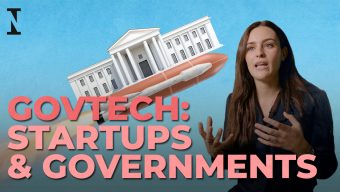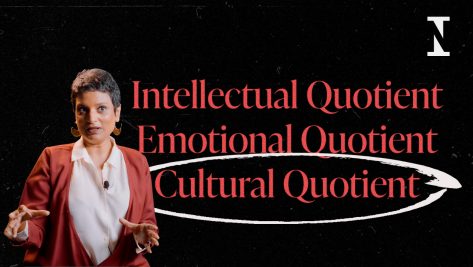If you ask an astronaut what capacities and values are necessary for a successful mission, the answer is likely to include various soft skills—the most important of which is trust. No wonder: when a rocket lifts off, the astronauts’ lives quite literally depend on the work of thousands of strangers.
Trust is the foundation of an organization: it guides the leader, undergirds customer relations, and fuels talent attraction and retention. This “trust triangle” takes work, both internally and externally. Within the organization, it is essential to cultivate a climate of well-being. With regard to the outside world, corporate messaging influences customer perceptions and the organization’s ability to recruit top professionals.
Trust is based on three pillars: logic, authenticity, and empathy. Logic refers to the need for credibility, which can be based on trustworthy data. However, authenticity and the ability to connect are essentially human qualities.
The perfect trust combination is linked to a sense of purpose. Beyond a certain salary threshold, alignment with values and a purpose is the key to motivating employees to give the best of themselves.
Attracting and retaining talent is a headache for organizations in many sectors. Building an environment of well-being and trust is fundamental in order to find the right people and stay relevant as a firm.
Trust is based on three pillars: logic, authenticity, and empathy.
The attraction of trust
According to the 2018 Edelman Trust Barometer, 70% of a CEO’s work involves building trust, either within the ranks of the company or among customers.
When it comes to trust, today’s organizations face a major challenge. Companies in every sector are becoming increasingly technological. In the banking industry, for example, young people handle most of their transactions on mobile devices and rarely set foot in a branch office. Organizations must recalibrate their message and clarify their purpose, so as not to become mere software companies. They must maintain close relationships with their customers, while at the same time attracting the professionals they need.
Culture and well-being
How can companies attract, engage, and retain talent? According to Deloitte, today’s professionals value purpose and meaning in their work like never before. The ideal job is fair; it requires growth and passion; and it involves collaboration, personal relationships, and transparency.
Talented candidates want more than just a salary; corporate culture matters to them. Organizations must spend more time reflecting on their culture, since this factor influences everything else down the line. Culture plus well-being equals better performance.
Professionals also take note of a company’s impact on society and the environment. Naturally, they prefer to work for companies that trust them and are worthy of their trust—organizations whose purpose and values are aligned with their own. Values provide direction. Trust and respect have to come from the top. When people feel valued and motivated, hard work comes naturally.
Thanks to social media, a company’s reputation—good or bad—is now common knowledge. Corporate messaging—both internal and external—is therefore more important than ever. The key to staying relevant is to create a connection with customers and employees on the basis of solid values.
Leaders must strike a balance between making decisions for employees to implement and trusting employees to develop their own action proposals.
Values provide direction. Trust and respect have to come from the top.
Key questions
What is your organization’s purpose? What is its legacy? How can it engage talent? How can the company, and its products or services, earn customers’ trust? Every organization must address these key questions— and the answers make all the difference.
Before it’s too late, let’s take a page from the startup playbook: failure is a learning opportunity. Carve out spaces for experimentation and flexibility within your organization, with no expectation of any particular result and no performance measurements, just for the sake of opening up new channels and seeing how they work.
Change is not easy, and it depends on your organization’s state of development. Nevertheless, you can and should commit to trust, values, and sustainability. If you cultivate a climate of well-being and define a clear purpose, then people will align with your organization and place their trust in it. This is your best shot at staying relevant in the future.
© IE Insights.











